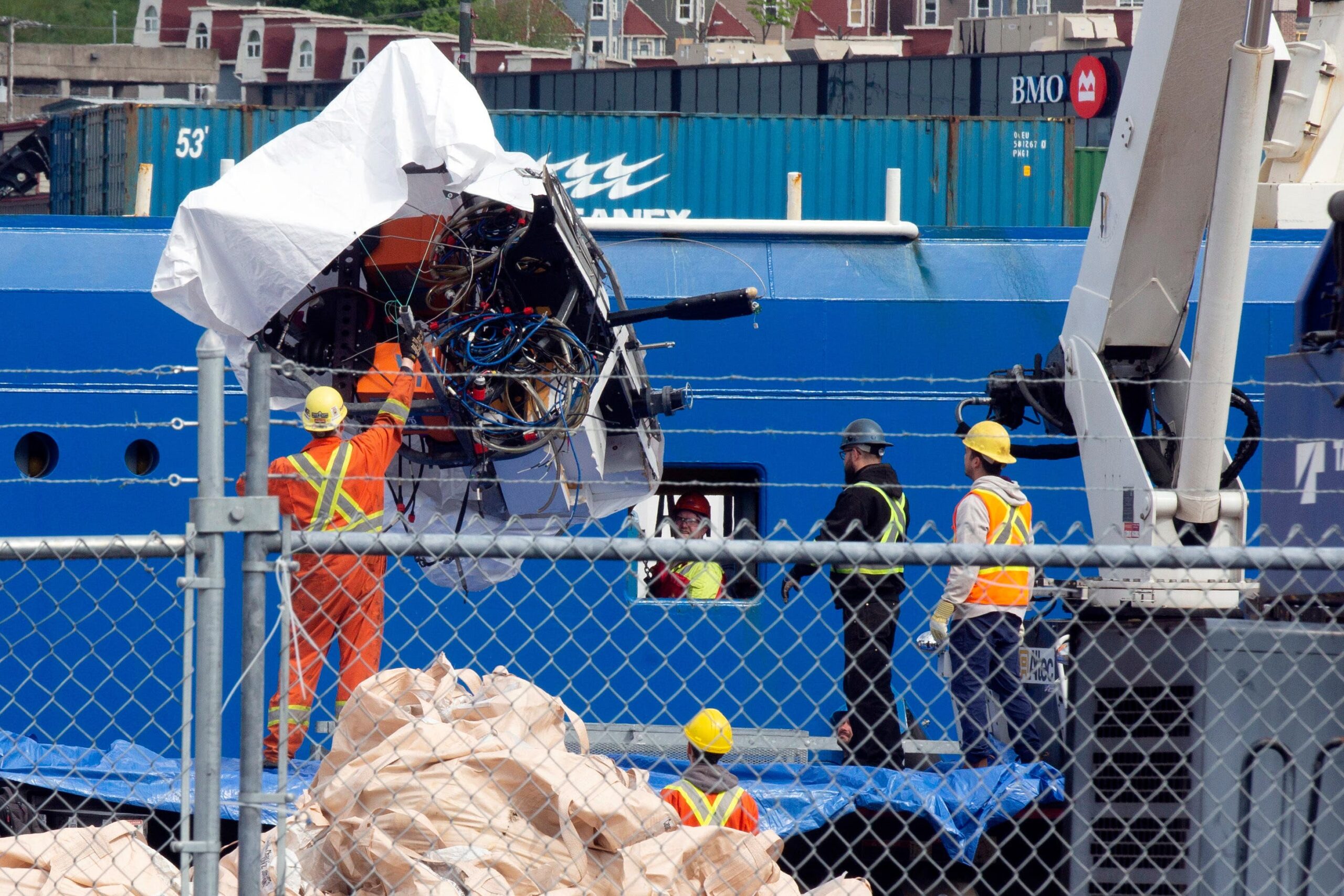Engineering flaws were the primary cause of the submersible’s implosion, which tragically killed five people near the Titanic wreckage, a new report has revealed.
The US National Transportation Safety Board (NTSB) stated that Titan owner OceanGate’s engineering process was “inadequate and resulted in the construction of a carbon fibre composite pressure vessel that contained multiple anomalies and failed to meet necessary strength and durability requirements”.
Its final report, published on Wednesday, also highlighted that the firm failed to adequately test the Titan, leaving it unaware of the vessel’s true durability.
British adventurer Hamish Harding and father and son Shahzada and Suleman Dawood were killed on board the Titan deep-sea vessel in June 2023, alongside French national Paul-Henri Nargeolet.
Stockton Rush, who was the chief executive of OceanGate Expeditions – which ran the expedition – was also killed.
Investigators said the Titan’s pressure vessel likely sustained damage after its 80th dive, which worsened during more dives before the fatal implosion.
They went on:”OceanGate’s analysis of Titan pressure vessel real-time monitoring data was flawed, so the company was unaware that the Titan was damaged and needed to be immediately removed from service after dive 80.”

The report also said the Titan likely would have been found sooner had OceanGate followed standard guidance for emergency response, and that would have saved “time and resources even though a rescue was not possible in this case”.
The deep-sea vessel was on an expedition to the Titanic wreckage around 435 miles south of St John’s, Newfoundland, when it lost contact with the tour operator an hour and 45 minutes into the two-hour descent, with the vessel reported missing eight hours after communication was lost.
After days of searching, wreckage from the submersible was recovered from the ocean floor near the Titanic.
